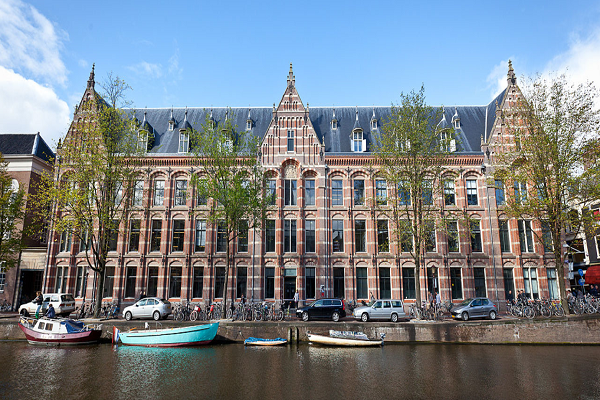University of Amsterdam: AI investments highly profitable in the Amsterdam region
Every euro invested in R&D for artificial intelligence (AI) in the Amsterdam region can generate more than five euros in extra economic prosperity in the long term. This is the outcome of research into the added value of R&D investments in AI, recently carried out by SEO Economic Research on behalf of the Amsterdam coalition AI Technology for People and Amsterdam Data Science.
The scale and quality of research within the Amsterdam region is an important driver of returns. The region has four knowledge institutions that have a long history in AI education and research – UvA, VU, HvA and CWI. With more than 200 AI researchers, they score highly in international rankings for the quality and impact of their fundamental AI research. In addition, industries for which AI is essential are strongly represented within the region. Amsterdam is home to companies working in FinTech, business services, information and communication technology, entertainment and the creative industries, including gaming and design – all industries that attract a lot of AI talent. This is reinforced by the intensive cooperation between the academic hospitals, the municipality of Amsterdam and the Amsterdam Economic Board in the field of AI. The Amsterdam region offers a large-scale, high-quality knowledge cluster with industries that have a strong drive to convert AI knowledge into commercial products and services.
Social impact framework
SEO has developed a framework to estimate the return of R&D investments in AI. The framework also includes an economic justification for AI investments using public funds. Such investments are justified if the expected benefits to society exceed the costs. This is especially the case for fundamental research, which would not (or would barely be able to) get off the ground without public investment. SEO has calculated that each euro invested by the government in R&D for AI can generate between €1.50 and €5.30 in the long run. How a specific project scores depends on (1) whether the project takes place in a geographical knowledge cluster, (2) whether the project is more fundamental or more applied and (3) what the adoption capacity of the application domain is.
Attention for the social and ethical consequences of AI
Investments in AI pay off economically, but attention must also be paid to the social and ethical consequences. Jobs can change because of this new technology, and therefore new skills and knowledge can be required of employees and employers. The labour market must ensure smooth transitions between the old and the new; there must be substantial investment in training and retraining. In addition to its strengths in fundamental research, the Amsterdam region has historically also done a great deal of research on the ethical, social and legal aspects of AI, with several labs focusing on these areas. Rising digitisation is also bringing risks with it, such as too much dependence within Europe on dominant American and Chinese players. Safeguarding healthy competition and market forces is necessary in that regard.
Amsterdam is Europe’s living lab
Anita Nijboer, ambassador for AI Technology for People, says the following about the SEO findings: ‘It is, of course, wonderful that the Amsterdam region comes out so well in this study, but to really make a difference and to put the Netherlands on the international map as a strong player in the field of artificial intelligence, knowledge institutions and companies in the Netherlands will have to work together. We are shaping this within our own region by working intensively with companies and governments as an Amsterdam coalition together with the Amsterdam ICAI organisation. The starting point is an integrated people-oriented approach in everything we do: Amsterdam as living lab. In addition, we are working together with other knowledge institutions and regions in the Netherlands and beyond, and we are an active partner of the Dutch AI coalition.’
Lynda Hardman, manager Research & Strategy at CWI and director of Amsterdam Data Science: ‘The ecosystem strengthens itself by attracting and retaining top academic talent. This makes the region attractive for large companies but also for students. Highly educated graduates then participate in the ecosystem by either working for existing companies or beginning their own start-ups. This investment cycle starts with fundamental research.’
Marc Salomon, professor at the UvA and MT member of Amsterdam Data Science, is concerned about Europe’s competitive position: ‘Large American and Chinese parties collect enormous amounts of data. They can train their AI algorithms better than we can and their superiority will only increase further. In addition, they are a magnet for talent and can cause a brain-drain in our country. I therefore believe that we in Europe should take the lead in setting up a Google-like company, especially for secure data storage. I am concerned about Europe’s lack of urgency and clout on this issue.’

